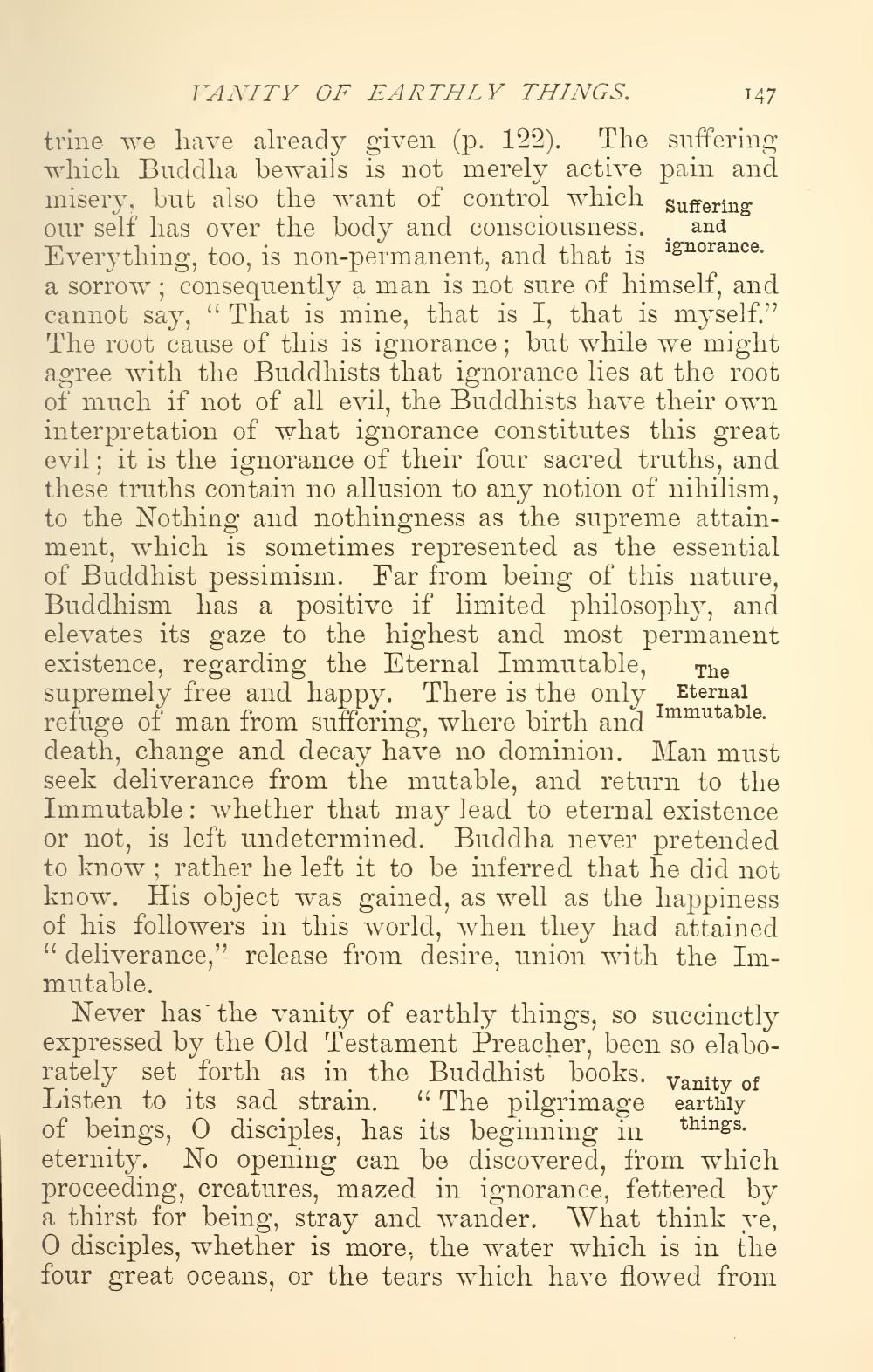________________
147
TANITY OF EARTHLY THINGS. trine we have already given (p. 122). The suffering which Buddha bewails is not merely active pain and misery, but also the want of control which Suffering our self has over the body and consciousness. and Everything, too, is non-permanent, and that is ignorance. a sorrow; consequently a man is not sure of himself, and cannot say, “That is mine, that is I, that is myself.'' The root cause of this is ignorance; but while we might agree with the Buddhists that ignorance lies at the root of much if not of all evil, the Buddhists have their own interpretation of what ignorance constitutes this great evil; it is the ignorance of their four sacred truths, and these truths contain no allusion to any notion of nihilism, to the Nothing and nothingness as the supreme attainment, which is sometimes represented as the essential of Buddhist pessimism. Far from being of this nature, Buddhism has a positive if limited philosophy, and elevates its gaze to the highest and most permanent existence, regarding the Eternal Immutable, The supremely free and happy. There is the only Eternal refuge of man from suffering, where birth and immutable. death, change and decay have no dominion. Man must seek deliverance from the mutable, and return to the Immutable: whether that may lead to eternal existence or not, is left undetermined. Buddha never pretended to know ; rather he left it to be inferred that he did not know. His object was gained, as well as the happiness of his followers in this world, when they had attained " deliverance," release from desire, union with the Immutable.
Never has the vanity of earthly things, so succinctly expressed by the Old Testament Preacher, been so elaborately set forth as in the Buddhist books. Vanit Listen to its sad strain. “The pilgrimage earthly of beings, O disciples, has its beginning in things. eternity. No opening can be discovered, from which proceeding, creatures, mazed in ignorance, fettered by a thirst for being, stray and wander. What think ye, O disciples, whether is more, the water which is in the four great oceans, or the tears which have flowed from




